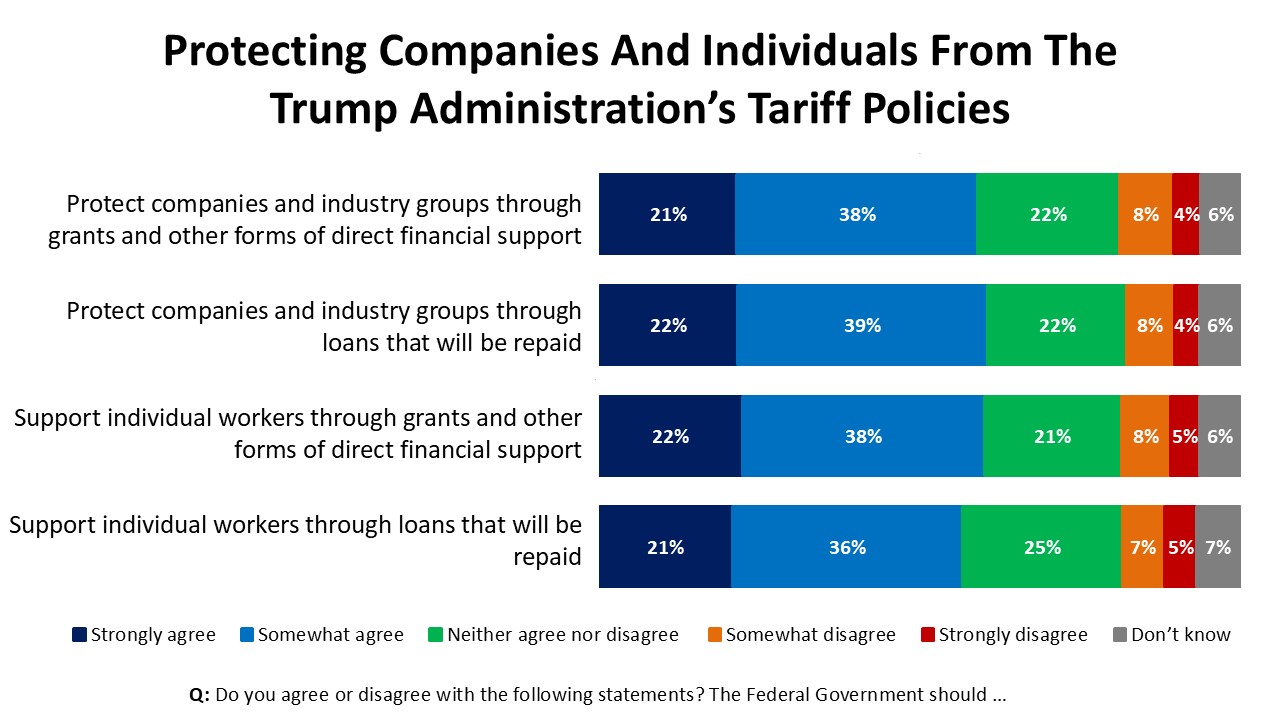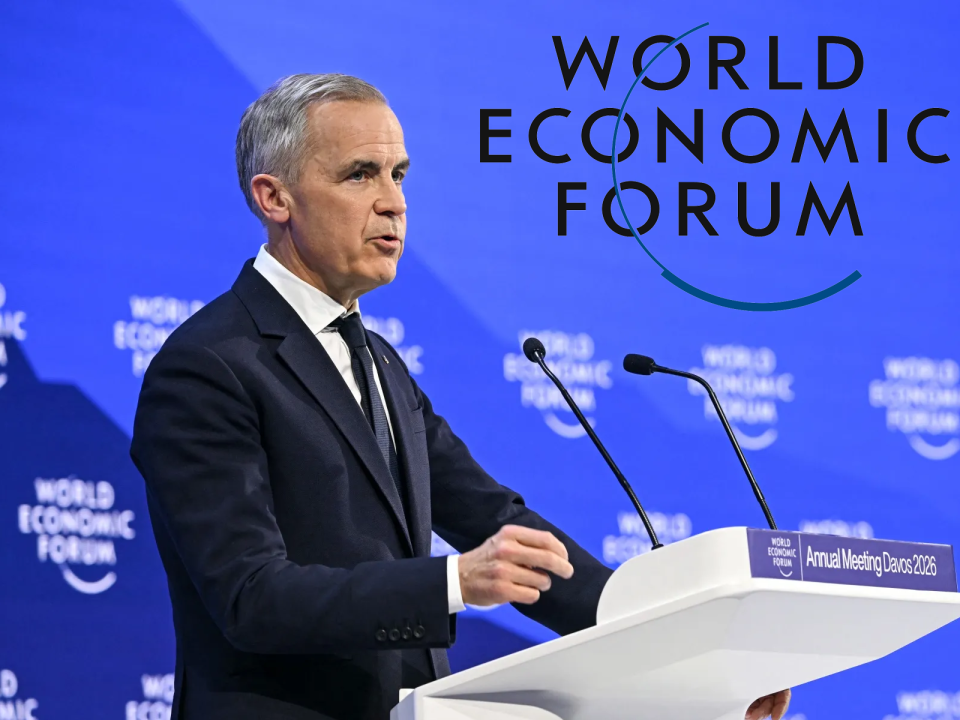
Canadians are concerned about Trump’s impact on Canada, and support intervention by the federal government.
These results come from an online poll conducted between May 12th and June 1st, 2025 of 4,449 Canadian citizens, 18 years or older. This survey was sponsored by INNOVATIVE Research Group Inc. and weighted to n=3,000 based on age, gender, region, education, and self-reported past federal vote to ensure the overall sample reflects the population according to Census data.
Canadians report widespread concern about Trump’s tariffs on Canadian goods (a staggering 79% of Canadians), and that Trump’s trade policies will seriously impact Canada (72%).
While only half of Canadians feel personally threatened by Trump’s trade policies (51%), a much larger majority sees a serious threat to Canada as a whole (72%). Support for retaliatory tariffs is closely tied to perceived national harm and not so much to perceived personal harm; those who agree that Trump’s polices will have a serious impact on Canada are more likely to be in favour of retaliation.
Unsurprisingly, the emotional response toward Trump remains profoundly negative, with a large majority reporting more fear than excitement (a net score of -51). By way of response a large majority (71%) favour responding with counter-tariffs if needed, but a slight majority (52%) think Canada should focus on our own interests rather than getting dragged into disputes.
Support for federal intervention is strong across the board, with the notable exception of some conservative ideological segments and Alberta and the Prairies. Whether it’s direct financial support (59%) or repayable loans (61%) for impacted companies, or helping affected workers (60% grants, 57% loans), the majority expect their government to cushion the blow and protect the economy from the Trump Administration’s tariff policies.

This expectation comes with a marginally changed approval of the federal government’s handling of Trump-related issues over the past three months (March ’25 +31, April ’25 +29, May ’25 +30). Support is lowest among Conservatives (33%) and strongest among those over 55 (18-34 43%, 35-54 45% and +50 58%) and men (men 53%, women 47%).
When it comes to approval of the provincial government’s handling of Trump-related issues, British Columbia (+33) and Ontario (+35) have the highest net government approval, followed by Atlantic (+31), Prairies (+28), and Quebec (+16). The province with the lowest net approval is Alberta (0).
Looking ahead, this collection of attitudes looks to be forcing the Carney government into a difficult balancing act, especially with their core supporters. Our research into expectations for the new government shows a strong expectation that the new government will not be as free with deficit spending as the Trudeau government was. The throne speech was pitched along those lines; much more an austerity agenda than a deficit one. As we can see here, that will cause tension with the interventionist expectations among the Liberal’s core supporters.


































